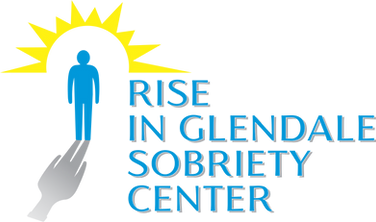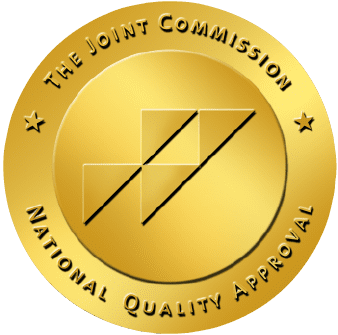Near Pasadena
Fentanyl Rehab
Near Pasadena California
Welcome to Rise Sobriety Center, located in the serene surroundings of Glendale, California, a stone’s throw away from Pasadena. At Rise, we are committed to providing an empathetic, effective, and evidence-based approach to alcohol addiction treatment. Our alcohol and drug rehab center is not just about overcoming addiction; it’s about transforming lives through dedicated support and comprehensive care tailored to the unique needs of each individual.
Understanding
Alcohol Addiction

Alcohol addiction is a complex disease characterized by the compulsive use of alcohol despite adverse effects on one’s health and well-being. It is a pervasive issue that impacts millions globally, transcending all demographic barriers. The 2023 National Survey on Drug Use and Health (NSDUH) states that 28.9 million people ages 12 and older had Alcohol Use Disorder in the past year. The journey to addiction often starts with occasional use that gradually escalates to dependence and addiction, driven by various genetic, psychological, and social factors. Our understanding of these elements forms the backbone of our targeted alcohol treatment strategies.
Signs and Symptoms of Alcoholism
Alcoholism, or alcohol use disorder, is characterized by an inability to manage drinking habits despite negative personal and social consequences. Recognizing the signs and symptoms of alcoholism is crucial for early intervention and effective treatment. Here are some of the most common indicators:
- Increased Tolerance: One of the earliest signs of alcoholism is an increased tolerance to alcohol. This means needing to consume more alcohol to achieve the same effects previously experienced with less.
- Withdrawal Symptoms: Experiencing withdrawal symptoms such as nausea, sweating, shaking, and extreme irritability when not drinking is a red flag. These symptoms can occur as early as a few hours after the last drink.
- Loss of Control: Drinking more alcohol than intended, or for a longer period than planned, can indicate a loss of control over alcohol use.
- Unsuccessful Attempts to Cut Back: Many individuals with alcoholism have tried unsuccessfully to reduce their drinking, indicating a loss of control and compulsion.
- Neglecting Responsibilities: Alcohol often takes a higher priority than personal responsibilities, leading to neglected duties at home, work, or school.
- Continued Use Despite Problems: Continuing to drink even when it causes physical, social, or interpersonal problems is a critical sign of alcoholism.
- Loss of Interest in Activities: Losing interest in hobbies or activities that were once enjoyable, especially if they do not involve drinking, is common.
- Risky Behaviors: Engaging in risky behaviors, such as driving under the influence or mixing alcohol with medication against doctor’s orders, is a dangerous and telling sign of alcoholism.
- Drinking in Secret or Alone: Frequent, secretive drinking or isolating oneself to drink can be indicators of a deeper problem.
- Mood Swings and Irritability: As dependence on alcohol increases, it can affect mental health, leading to mood swings and irritability.
- Physical Signs: Physical signs may include redness of the face, a bloated appearance, and sluggish movement. Over time, more severe health issues can arise, such as liver damage, cardiovascular problems, and neurological impairments.
Recognizing these signs and symptoms in oneself or others can be the first step toward seeking help. Alcoholism is a serious but treatable condition, and support is available through medical professionals and recovery programs like those at Rise Sobriety Center.
The Dangers of Alcohol Abuse
Alcohol abuse poses significant risks not only to the individual but also to society at large. It can lead to a myriad of both acute and chronic health issues, affect mental and emotional well-being, and disrupt social and professional relationships. Here are some key dangers associated with alcohol abuse:
- Health Complications: Chronic alcohol abuse can lead to liver diseases such as cirrhosis and alcoholic hepatitis, pancreatic diseases, cardiovascular problems, and immune system dysfunction. Alcohol increases the risk of developing various cancers, including liver, breast, esophageal, and colorectal cancer.
- Mental Health Issues: Alcohol abuse is strongly linked to mental health disorders such as depression, anxiety, and bipolar disorder. It can exacerbate existing mental health conditions and increase the risk of developing new psychiatric issues.
- Impaired Judgment and Coordination: Alcohol impairs judgment and coordination, leading to dangerous behaviors like driving under the influence. This not only puts the drinker at risk but also endangers the lives of others on the road.
- Social and Relationship Problems: Alcohol abuse often strains relationships with family, friends, and colleagues. It can lead to social isolation, marital discord, and difficulties in professional relationships, impacting career and social status.
- Economic Impact: The financial burden of alcohol abuse is significant, including the cost of purchasing alcohol, medical treatments for alcohol-related health issues, lost productivity at work, and potential legal fees from alcohol-related offenses.
- Risk of Injury: Alcohol consumption increases the risk of injuries from falls, drownings, burns, and other accidents. It is also linked to violent behaviors and can be a factor in instances of domestic violence and public aggression.
- Impact on Decision-Making: Chronic alcohol abuse can lead to poor decision-making capabilities, affecting financial decisions, professional choices, and personal relationships.
- Long-Term Brain Effects: Alcohol can cause long-term changes in the brain, affecting mood, behavior, and cognitive functions. This can result in memory loss, concentration problems, and in severe cases, permanent brain damage.
- Withdrawal Risks: For those who become physically dependent on alcohol, withdrawal can be dangerous and, in some cases, life-threatening. Symptoms can include severe shakes, confusion, high blood pressure, fever, and hallucinations.
Understanding
Alcohol Addiction
Our alcohol rehab center’s proximity to Pasadena offers easy access to a peaceful retreat from the hustle and bustle, where clients can focus fully on recovery. Rise Sobriety Center is recognized for its accredited programs that emphasize personalized care, ensuring that each client’s recovery plan addresses their specific needs, lifestyle, and the severity of their addiction. Our serene environment, combined with our expert staff, provides the perfect setting for healing and transformation.
At Rise, we adopt a holistic treatment philosophy that addresses the physical, psychological, and emotional aspects of alcohol addiction. We incorporate the latest research and proven methodologies in addiction science, ensuring our clients receive the most effective and modern care available. Our approach is built on the foundation of respect for the individual and their journey, supporting not just sobriety but also personal growth and development.

Substance Abuse
Treatment Programs Offered

Medical Detox
At Rise Sobriety Center, The detoxification process is meticulously designed to ensure the safety and comfort of our clients as they begin their journey toward recovery. Detox is a critical first step in the treatment of alcoholism, involving the complete cessation of alcohol use and the management of withdrawal symptoms under strict medical supervision. Our medical team, comprising experienced physicians, nurses, and support staff, uses the latest protocols and medications to mitigate withdrawal symptoms, which can range from mild anxiety and shakes to severe complications such as seizures and delirium tremens.
During detox, clients are continuously monitored in a secure, supportive environment to address any emerging health issues immediately. The goal is to stabilize the individual physically and prepare them psychologically for the next phases of treatment. This process not only helps in reducing the immediate physical effects of alcohol withdrawal but also lays a foundation for a comprehensive treatment plan tailored to the individual’s needs.

Inpatient Rehabilitation
Our residential treatment program at Rise offers a structured and supportive environment where clients can focus entirely on their recovery without the distractions of everyday life. This program is intensive and designed to treat severe patterns of alcoholism through a combination of therapeutic strategies and holistic care. Clients reside on-site and participate in a structured daily schedule that includes individual therapy, group therapy, educational workshops, and physical activities.
Therapeutic modalities in our residential program include cognitive-behavioral therapy (CBT), which helps individuals identify and change negative thinking and behavior patterns; family therapy, which involves loved ones in the recovery process; and motivational interviewing, which enhances an individual’s motivation to change. Holistic treatments such as yoga, meditation, and art therapy are also incorporated to support overall wellness and mental health.
A typical day in residential treatment is carefully planned to maintain a balance between therapy sessions, activities, and personal time, allowing clients to reflect on their learnings and progress. This immersive approach not only addresses the physical aspects of addiction but also focuses on emotional healing, skill-building, and relapse prevention strategies essential for long-term recovery.

Outpatient Programs
For clients who require a less restrictive treatment setting, our outpatient programs offer a vital source of support while allowing individuals to maintain their daily responsibilities at home or work. These programs are ideal for those transitioning from residential treatment or those whose conditions are less severe but still require structured therapy.
Outpatient treatment at Rise involves several weekly sessions of group and individual therapy that can be scheduled around work and family commitments. These programs provide flexibility but also ensure consistent support through regular check-ins and therapy sessions. The focus is on continuing the recovery journey through cognitive-behavioral therapy, relapse prevention education, and ongoing support groups.
By participating in our outpatient programs, clients can apply the coping strategies learned in real-world environments progressively, which is crucial for long-term sobriety. The goal is to reinforce daily routines and responsibilities while staying committed to recovery goals, with the support of professional counselors and peer groups.

Evidence-Based
Treatment Methods
At Rise Sobriety Center, our approach to treating alcohol addiction is rooted in evidence-based practices, which are methods that have been scientifically tested and proven to be effective through rigorous research. These practices are the cornerstone of our treatment programs, ensuring that we offer the highest standard of care that leads to successful recovery outcomes.
Cognitive Behavioral Therapy (CBT)
One of the most widely used evidence-based techniques, CBT helps individuals identify and modify negative thought patterns and behaviors associated with alcohol abuse. By focusing on practical skills, CBT teaches clients to cope with situations and emotional states that might trigger relapse.
Medication-Assisted Treatment (MAT)
MAT combines behavioral therapy and medications to treat substance use disorders. Medications such as naltrexone, acamprosate, and disulfiram are used to manage withdrawal symptoms and cravings, improving the likelihood of long-term recovery.
Group Therapy and Support Groups
This involves facilitated group sessions where clients share their experiences and challenges with peers. The communal nature of group therapy helps reduce the stigma and isolation often associated with addiction, fostering a sense of community and shared purpose.
Holistic Approaches
to Recovery
In addition to evidence-based treatments, Rise Sobriety Center incorporates holistic approaches that treat the whole person, not just the addiction. These methods are designed to support overall well-being and integrate physical, mental, and spiritual health, which are vital for comprehensive recovery.
Mindfulness and Meditation
Practices such as mindfulness meditation help individuals focus on the present moment, enhancing self-awareness and emotional regulation. These techniques are beneficial in managing stress and reducing the anxiety that can lead to or exacerbate substance abuse.
Yoga and Physical Fitness
Physical activities like yoga and tailored exercise programs help improve physical health, reduce stress, and increase emotional resilience. Regular physical activity is a crucial part of recovery as it stimulates the production of endorphins, which provide natural pain relief and a sense of well-being.

Start your Journey to Recovery
at Rise Sobriety CENTER
Choosing Rise Sobriety Center means choosing a new beginning. With our comprehensive approach to treatment, expert staff, and supportive environment, we are dedicated to helping you reclaim your life from alcohol addiction. Reach out to our treatment facility to take the first step on your journey to recovery.
Your Journey to Living a Life Free of Addiction, Starts Here!
Frequently Asked
Questions
We offer a comprehensive range of programs including detoxification, residential treatment, outpatient services, and aftercare support tailored to individual needs.
The duration of treatment varies depending on individual circumstances but generally ranges from 30 days for short-term programs to 90 days or more for long-term care.
Detox involves medically supervised withdrawal from alcohol, managing symptoms with medications if necessary, and preparing the individual for further treatment.
Yes, family involvement is encouraged through our family therapy programs, which help to heal relationships and improve communication.
We offer various aftercare services including follow-up sessions, support groups, and relapse prevention strategies to support ongoing recovery.

